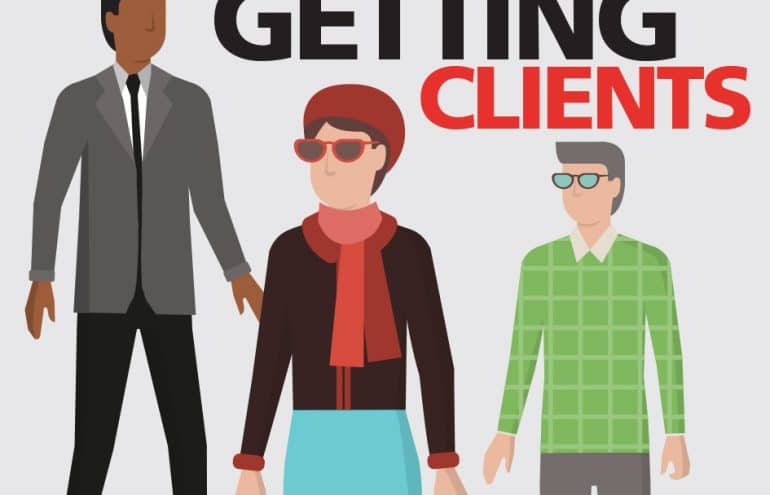This is probably wishful thinking, but wouldn’t it be nice if every solo practitioner and small law firm had a business plan? I mean, mostly nice for them. Probably not for their competitors ... or for me. I’ve become somewhat ambivalent on the subject, as the sands have run through the hourglass. You see, I always tell our clients at LOMAP to create business plans. Almost universally, they never do. But if they did, I’d have to review them. Double. Edged. Sword. Nonetheless, yes, it is a good idea to create and follow a business plan. The question is, how far in advance can you plan before you start to lose effectiveness? I’m so glad you asked. ... READ THE REST
Originally published March 5, 2015
Leading a law firm is often compared to being the chief herder at a cat ranch. On the communications front, the managing partners at a law firm are challenged not only with what to say to their colleagues and clients but when and how to say it. Social media, and Twitter in particular, offers those in the top spots at law firms an outlet to reach and connect with people in a way that transcends the traditional memo and email blasts that fill up inboxes. Several of these managing partners’ counterparts in the corporate world — notables like Bill Gates, Richard Branson and Elon Musk — have been using Twitter for years with great success in building and engaging a following that ultimately helps promote their products and cement customer loyalty. Still, despite its high-profile benefits, only about 5 percent of the CEOs of America’s biggest companies are active on Twitter. A thorough recent search of Twitter for leaders of large law firms uncovered about a half-dozen from the AmLaw 100 that have been regularly posting in the past year or two. Why so few? For many, Twitter remains a mystery, for sure. And that’s a shame. Despite its more spartan user interface, especially when compared with LinkedIn and Facebook, Twitter is ultimately about building and interacting with a community of people, companies and groups who share common interests or who are looking to be entertained or informed, or any combination of those. But like most marketing opportunities, there are pros and cons to having your law firm’s leader on Twitter. ... READ THE REST
Originally published March 4, 2015
It gets to be a bit much, all the chatter about the legal profession changing at the speed of light. Even if it is transforming into something quite great — I know, maybe it is and maybe it isn't — it seems nearly impossible to figure out what to do about it in your own law practice. Particularly if you can hardly keep your head above water with the old normal practice of law.
Originally published March 2, 2015
Question: From a firm administrator’s perspective, what could a lawyer do to be a better boss? Supervising staff can be a challenge, but any lawyer can be a good boss with a little conscious effort. In this edition of "Ask the Experts from the Association of Legal Administrators," Sharon Abrahams and Paul Morton offer key advice to improve your supervisory skills. ... READ THE REST
Originally published February 25, 2015A Roman walks into a bar and tells the bartender, “I’d like a martinus.” The bartender says, “You mean a martini.” “No,” says the Roman, “I only want one.” English is a funny language — in both senses of the word. English incorporates words from other languages, and sometimes that means the usual rules don’t work. Usually, we add “s” to the end of a word to make it plural or “es” if the word ends in s, sh, ch, or z. But more than one stimulus are “stimuli,” not “stimuluses.”
Originally published February 23, 2015
For lawyers, using Facebook for marketing is a tough nut to crack. And Facebook has been making it harder to reach your fans on its platform with some recent steps. Many brands are saying that their reach is getting smaller and smaller due to changes in the news feed algorithm. What can you do to still make use of the platform as a law firm? Here are some tips
Originally published February 20, 2015
Everyone makes assumptions. You might be surprised, though, at how many malpractice claims result merely from a lawyer working under a false assumption. Take the attorney who allows her workload to grow beyond a reasonable level — she might not worry because she assumes that somehow she'll find the time to get it all done. Or, she might assume a colleague will be available to pitch in, or that someone else is properly trained to assist her. The problem? What if there really isn’t enough time to get it done? What if no one else is available? What if the person asked to help out doesn’t know how to do the work correctly? All kinds of assumptions come into play in any law practice. Here are two examples of how assumptions can cause you trouble, based on actual claims, and a few ways to address the problem. ... READ THE REST
Originally published February 19, 2015
If you are an attorney in your own firm, you have made the leap — you are an entrepreneur. You probably started your firm because you wanted that feeling of autonomy and control — you wanted to call the shots. But how much control do you really have? When a client calls, you have to answer. When you start a new marketing campaign, you have to wait for results. And when the calendar says it’s tax time, you have to collect your numbers and get your papers ready. Taking Control of Your Business: The Three-Legged Stool. If you are like most attorney entrepreneurs, you make most decisions reactively. Instead of running your business, your business runs you. Like so many other things, tax season is something that just happens to you — something painful you just hope to survive. If you’re constantly scrapping to keep up, it’s time to take a deep breath. It can get better and you can take control, even with taxes. But first you need a working system for managing your finances — all year-round. ... READ THE REST
Originally published February 18, 2015Okay, don't get your knickers in a knot. We're not talking about illicit affairs steaming up the supply closet, or after-hours trysts with clients. Today, in the first of a two-part series, Christy Cassisa is talking about an entirely different sort of love — it’s called companionate love, and new research shows it is good for employers, employees and even clients. What Is Companionate Love? Companionate love refers to a type of emotional culture found in the workplace, one in which employees care for one another and relationships are based on warmth, affection and connection. ... READ THE REST
Originally published February 17, 2015
At a recent Marketing Partner Forum, organizers presented the results of a Thompson Reuters survey of law firm marketers. Two points in particular jumped out at me: (1) The “most-important initiative” for the law firms was improving business development; and (2) the top challenge to business development was lawyer engagement. The longer I work with lawyers, the more I am convinced that the problem firm management has engaging lawyers lies with the marketing/business development side of the house, not the other way around. Sure, there are some skeptical or even downright recalcitrant attorneys when it comes to marketing. But for most, I believe the lack of engagement comes because they haven’t found a way to be comfortable in their business development skin. ... READ THE REST
Originally published February 16, 2015